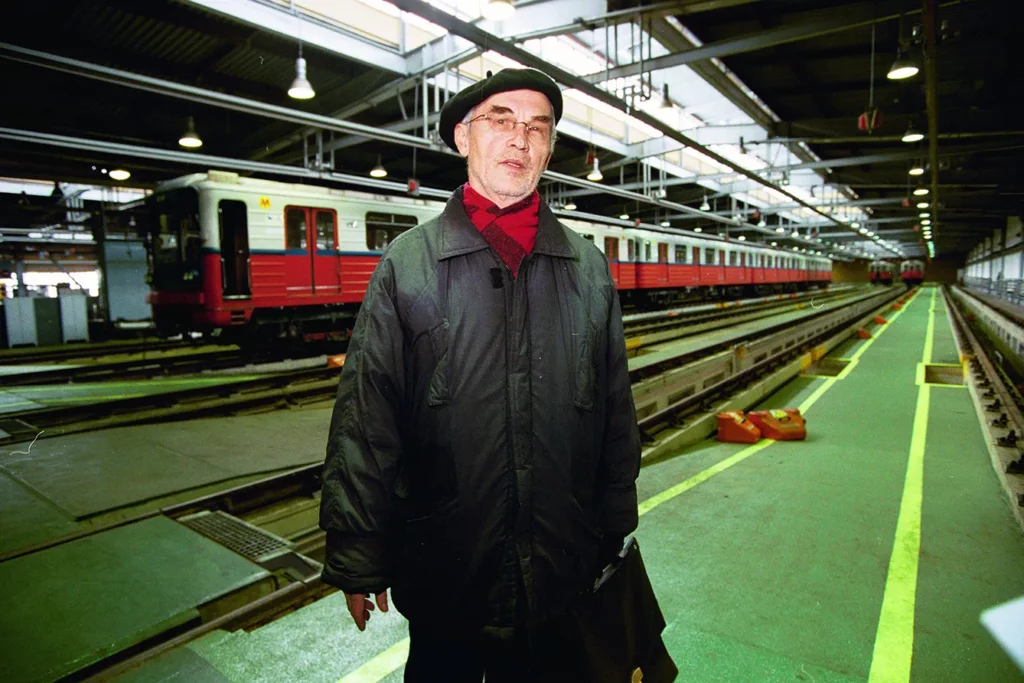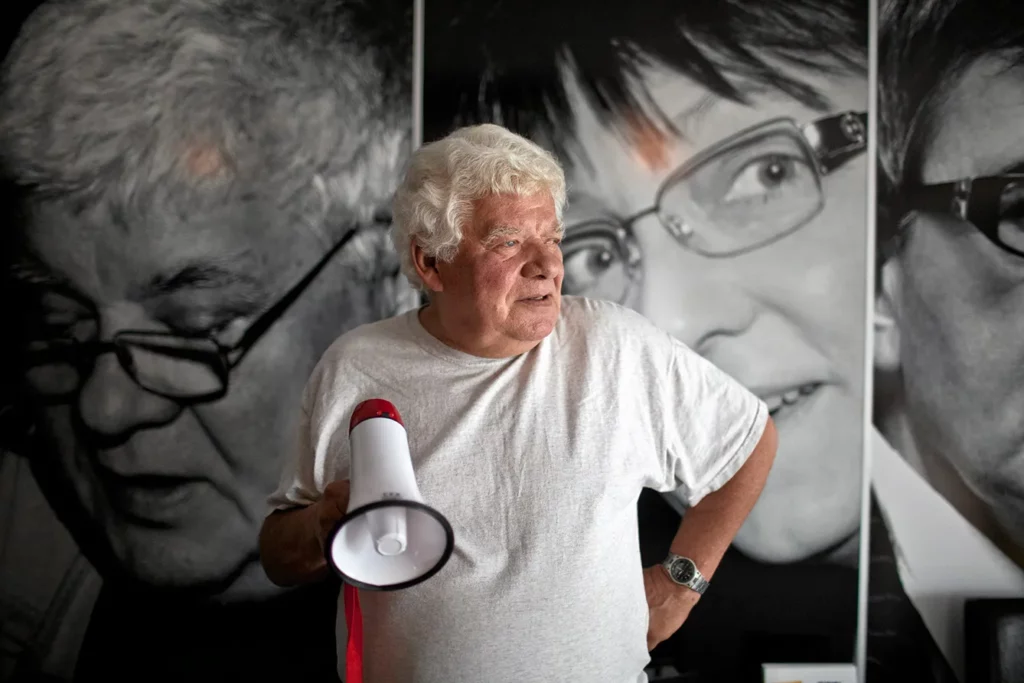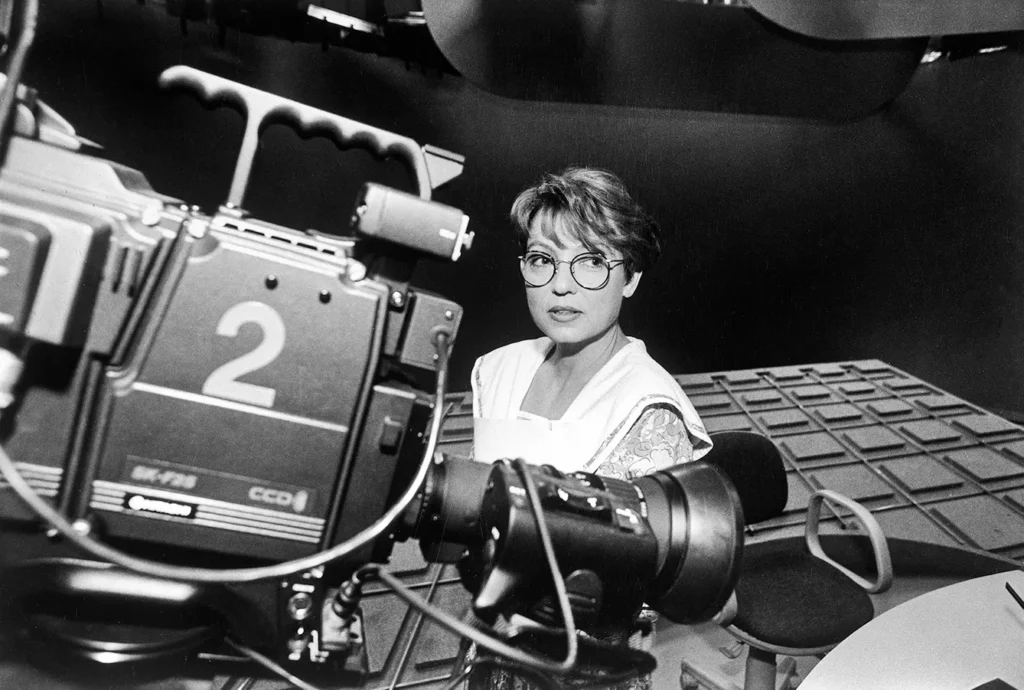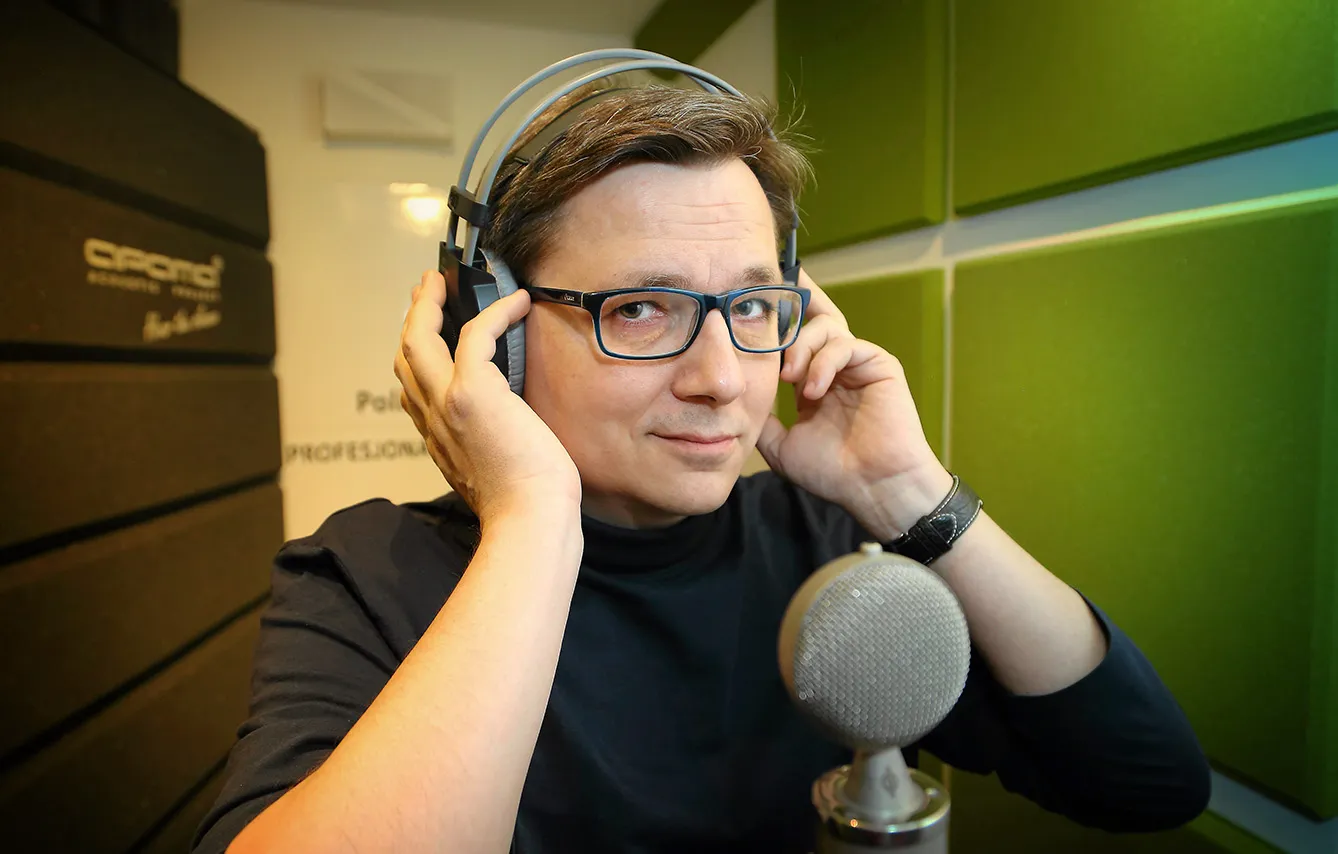“Next station: City Hall-Arsenal,” announces a deep, silky-smooth male voice to subway passengers nearing the station at Bankowy Square in the Polish capital of Warsaw. The voice is, in a way, vintage – not that it’s computer generated, it’s vintage in another way.
The Polish word for Arsenal is the same but ends in “ł,” which is these days pronounced like the sounds that the “w” in “word” makes. During pre-war Poland, the recommended version of this sound was a broad consonant – as linguists describe the variant, pronounced somewhere at the back of your tongue. Now extinct or at best ridiculed as elitist, it was also called the “stage ł” as actors were taught to use it.
Varsovians make an exception and love and appreciate the old-school sound of this broad ł in “Arsenał,” recorded by the voiceover actor Ksawery Jasieński, and his announcements’ samples ornate a hip-hop hit song by Warsaw artist Taco Hemingway.



Born in 1931, the actor finds it funny and puzzling that a half-hour gig of reading dozens of station announcements for the first line of the Polish subway made him more appreciated than decades of TV work. It’s even funnier, considering that Jasieński did it for free only to replace the previous version that he found unprofessional.
But there’s a paradox in this paradox – yes, Jasieński’s voice in the subway is amusing, but it’s also familiar. Probably no one knows the actor’s face, but decades of work as a voiceover actor have made him instantly recognizable to generations of Poles.
The transparent actor
This comes from a Polish TV quirk. While in the cinema, all foreign movies are subtitled (except for children’s movies that have regular dubbing), on TV, you hardly ever find them so. In most cases, foreign language films (as well as foreign quotes on news broadcasts) are translated by a voiceover made by an actor – usually one of a handful of professional voiceover artists.
In most cases, they’re men, with the notable exception of Krystyna Czubówna, a cult figure narrator of nature documentaries who is now so famous that her voice describing anything clearly alludes to the genre. (Imagine her describing the behavior of a couple on a date using words such as “male,” “nest,” and “mating.”)
Being a voiceover actor is a form of art, but it also has tools for the trade. To master it, you have to be able to squeeze or sometimes stretch your line over an actor’s on-screen appearance and voice. The tone of voice has to match the action, conveying at least a part of the character’s emotions. At the same time, the voice must be transparent – after all, it’s the movie that counts, not the lector. And hey, it’s best to leave some hint of the actor’s voice for the people to enjoy.
The new voice of the voiceover
The new generation of audiences seems a bit different. With the advent of DVD, digital copies, and now On-Demand, we can all enjoy subtitles. Young Poles are also much more fluent in English than generations before, allowing them to forgo subtitles entirely in contact with some of the biggest cultural phenomenons today. Still, though, the largest VOD companies offer voiceover as an option, at least in part of their shows. The recent death of Tomasz Knapik, one of the famous yet faceless voices of Polish TV, was mourned for days.
And it’s not exactly that there’s no need anymore for speakers. Audiobooks have their own market for audio actors, though hit productions use famous cinema actors, while some authors choose to narrate their books themselves. Nature documentary voiceover actress Krystyna Czubówna reading the first part of “2001: Space Odyssey”, the one about the monkeys meeting the Monolyth, is 100 percent pure gold.
Ksawery Jasieński, the subway announcer, started recording audiobooks back in the 1960s, not as a new offer for a broad market entertainment, but for the sake of the library for the blind – another of his claims to fame. His replacement in the new subway lines is Maciej Gudowski, famous for hundreds of movies, including the Bond series, Monty Python’s Flying Circus, and the hit show “Dynasty” that aired in Poland in the nostalgia-inducing 1990s.
He got this job thanks to a general media-promoted vote, where he received over 47% of the 35 thousand votes. Among female competitors were famous actresses, including Krystyna Janda, known for Andrzej Wajda’s classic movies – but even the stars of her rank were no match for Gudowski.
Voices in our head
Another Polish voiceover artist Jarosław Juszkiewicz was an object of famous unrest when in 2020, Google announced that his directions would be replaced with a “soulless machine.” (One of the competing services, AutoMapa, used the voice of famous rally driver-turned-politician Krzysztof Hołowczyc.) Juszkiewicz recorded a farewell video he shared on YouTube, but the backlash from Polish users was so fierce that the tech giant postponed the change.
In his movie, he alluded to the custom of using GPS directions every time we travel – by explaining how to tell the directions of the world if there’s no sat nav on hand. “In Poland, we don’t say ‘we’re already here,’ but instead ‘you have reached your destination,’ and I think it’s beautiful,” commented one of the viewers. The other one thanked him for an order to turn around on a drive to his own wedding. “Thanks to you, I avoided a mistake,” he quipped.
Poles seem to have a lot of voices in their head. But in this case, that’s a good thing.
See Also: A Short Guide to Polish Milk Bars







